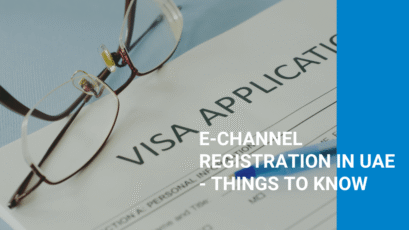UAE is one of the most popular business destinations in the world. The new business licenses are in a growing phase presently. According to data from Dubai Economy, more than 40,000 new licenses were issued in 2024. To start a business in the UAE, the investor has to follow certain procedures.
Alongside the Dubai Economy are numerous Free Trade Zones in Dubai, UAE. They will support the business requirements of the individuals. There are Free Zones that offer special discounts and competitive company formation packages.
Where to Start a Company in UAE?
Multiple options are available to start a company in UAE for entrepreneurs with a business idea. Setting up a business in UAE depends on various factors especially the Business Jurisdiction where the company is registered.
There are three business jurisdictions in UAE and it is Mainland, Offshore and Free Zones. Again there are more than 40 Free Zones in UAE. So, there are several options to start a company in the UAE.
Each free trade zones come with a unique set of advantages. Similar is the case with mainland company formation choices, depending on the investor’s business requirements, nature of the business activity, employee size, budget, etc.; the right choice is to be made.
UAE Mainland – Things to Know
The ability of 100% foreign ownership is a highlight of incorporating a company in the UAE mainland. Also, the process of registering a company in the UAE is becoming easier with reduced paperwork.
Additionally, the new amendment of the Companies Law enabling 100% foreign ownership for the mainland is boosting the new company registration in UAE. Most of the business activities can be obtained from the UAE mainland by the investors.

They can easily set up an LLC Company in the UAE Mainland and start operating the business seamlessly. There are a wide variety of business license types available in the UAE Mainland. It ranges from Commercial to Professional to Industrial type.
Furthermore, an LLC Business is the most common type of business establishment in the UAE. Then, there are Single Owner companies, Branch Offices, Corporate Offices, and more.
Starting a Company in UAE – Things to Know
The process of starting a company in UAE involves few steps. It starts with selecting a business activity. You can choose the activity based on the business you are going to conduct.
For certain activities in healthcare, food manufacturing, etc., often there are requirements for additional approvals. For example, opening a cafeteria or restaurant in UAE requires special approval from the Dubai Municipality and the Department of Food Safety in some cases.
Choosing the Business Jurisdiction
The next step is choosing the right business jurisdiction – Free Zone or Mainland.
There are Free Zones in UAE that are specifically catering to a business activity. For example, for certain special business activities such as setting up a law firm in UAE, the best choice is Dubai International Financial Centre.
Documents Required for Starting a Business in UAE
To Start a business in UAE, the investor must submit the following documents to the respective authority or business jurisdiction:
- Shareholder’s and manager’s valid passport copy
- most recent entry stamp into the UAE, UID number (on tourist visa copy) or UAE residence visa, and Emirates ID copy (if already a resident of UAE)
- Certain Free Zones and activities in the mainland require a business plan with a detailed description of the business activities
- Duly filled-in license application form, pre-approvals (if applicable), attested professional qualifications, or university degrees.
Once the documents are submitted to the Free Zone there will be review and the Trade License will be issued to the investor. The investor can start operating their company once they have the Trade License in place.
The Free Zones in UAE have multiple cost-effective options like Flexi-Desk, Shared Desk, Shared Office, etc. Investors can keep the overall cost low by choosing any of these office spaces.
Investors who have a company within the free zone can avail all the facilities based on the requirement.

Choosing a Bank Account
UAE Banks have various options for investors to open an account and operate their business.
There are various requirements from the bank such as depositing the minimum share capital, maintaining a minimum balance, etc. Depending on the company structure, nature of the business activity, shareholder profile, the investor can choose the right bank to open their account.
Our team of Expert Consultants will guide you in bank account opening in UAE through our network of banking professionals.
Cost of Business License in UAE
Business License cost in UAE varies across business jurisdictions, type of business license chosen, office space requirements, capital requirements, local sponsor fees, and more. The most cost-effective option for setting up a company is the Free Trade Zones of UAE.
Especially the Free Zones in the northern emirates like Sharjah, Ajman, and Ras Al Khaimah has the cheapest company formation offers for the investors. A business can be setup in Sharjah Media City for as low as AED 9,200 for a zero visa quota package.
There are multiple company formation packages available in the Free Zones of UAE. Investors can choose their desired business package based on the business requirements.
Should I rent Office Space?
In UAE, there is no mandatory requirement for having a physical office space for all business categories. Few strategic activities require mandatory office space as a requirement.
Consultancies and other smaller business activities such as computer servicing, etc.; can operate virtually without having an office space.

Hiring a Business Consultant
Setting up a Business in UAE and getting a business license involves a certain procedure and a lot of government department approvals.
Also, there are certain compliance requirements for the investors to successfully incorporate the company in UAE.
Hence, it is advisable to take the assistance of an expert Business Consultant who is well aware of the business processes across free zones and the mainland of UAE, the residence visa rules, and more.
To know more about Business Setup in UAE, connect with our team right away!
Read our blog: 9 Questions to Answer Before Starting a Company in UAE
Contact Us: Aurion Business Consultants











